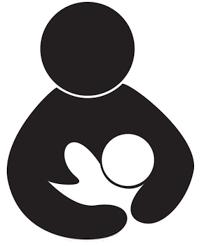Interview with Kirsty Biggs: Infant feeding education Kirsty Biggs is an academic foundation year 2 doctor who works in Stoke. She went to medical school in Brighton and did an intercalated BSc in Reproductive science at Imperial. During her intercalation, she did a cross-sectional project on formula supplementation in the postnatal ward. It was after this (when she returned back to medical school) that she then started her breastfeeding education work, after she witnessed doctors giving inappropriate advice during a pediatric placement. Her main interest is in Infant feeding, but she is also involved in other obstetrics and gynecology topics. MV: Did you enjoy your medical school, and was it hard to intercalate externally ? KB: I had a great time at med school, like I hope most people do, and got myself involved in lots of fun extra-curricular stuff as well as some research and teaching projects. At Brighton, they made it really easy for us to intercalate externally. I knew I wanted to do something O+G related and fancied the chance of experiencing student life in a different city. MV: Why do you think you are so interested in Infant Feeding? KB: Prior to intercalation, I knew very little about infant feeding. I was aware that ‘breast is best’, however really didn’t understand the true extent of the benefits. I think it is just amazing that something completely natural, and free, can have such an impact on health, economy and wider society. Breastfeeding plays a key role in achieving sustainable development goals, encompassing health, poverty, education, gender equality and sustainable consumption. MV: Do you think medical students get enough training on Infant feeding? KB: This was my motivation for the breastfeeding education project! The only reason I really knew anything about infant feeding is because I happened to do my dissertation on it, so I suspected it was under-taught. As doctors we are important role models for women, and it is important we have the knowledge and skills to support mothers and help them to make informed feeding choices. I was delighted to find that 97% medical students* believed doctors to play a role in supporting breastfeeding, with 93% expressing a desire for further teaching on the subject. *based on 411 students (years 4/5 or 5/6). MV: What made you pick an academic F1 compared to the mainstream programme? KB: I realised during intercalation how much I enjoyed research and decided I’d like it to be part of my career. The academic foundation programme (AFP) gives you, paid, dedicated time to work on something you’re interested in, alongside the usual clinical work. It’s a great combination and adds some variability to my week. I have a flexible schedule which has allowed me to develop new skills, build my CV and undergo multiple projects.
8











